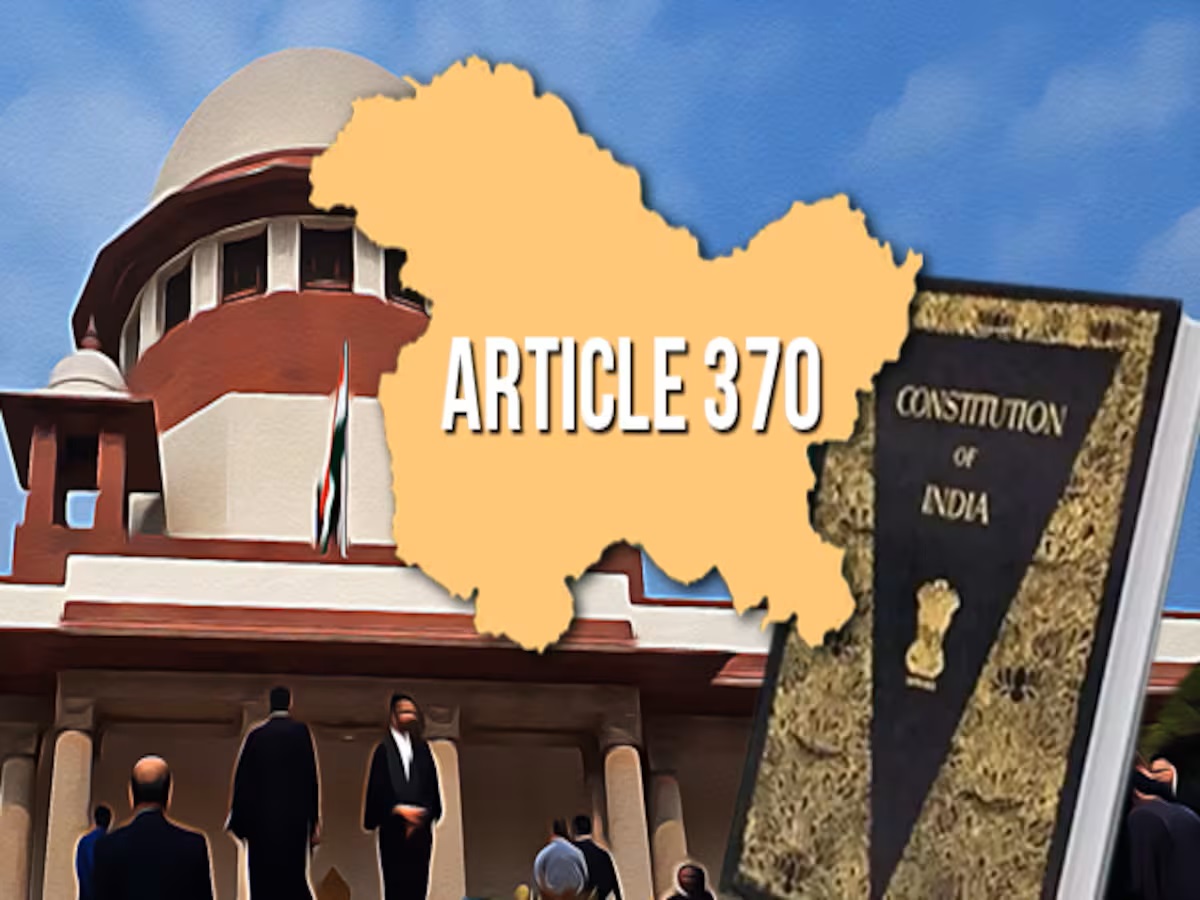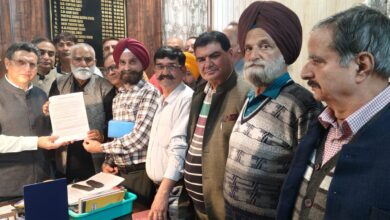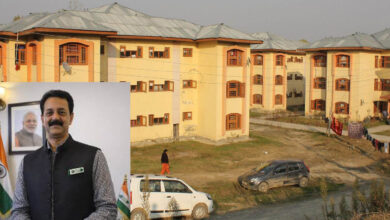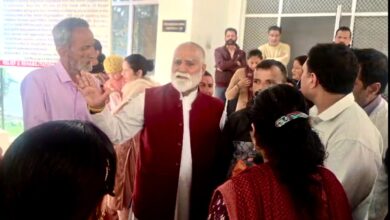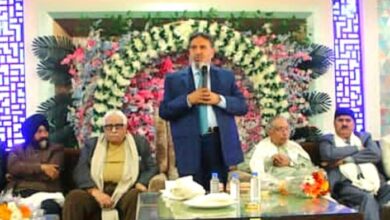Deciding the constitutionality of the abrogation of article 370
Omkar Dattatray

The highest court of the land-supreme court of India is hearing the rite petitions filed against the abrogation of article 370 of the constitution .The fact of the matter is that article 370 was a temporary provision of the constitution and it was meant to withdrawn by the constituent assembly of the erstwhile state of Jammu and Kashmir .However there is no constituent assembly in J&K and in that case which entity is empowered to annul this temporary provision of the constitution of India which provided for the special status and position to the Jammu and Kashmir .It is also a fact that it is again the constituent assembly which can make it permanent .Since there is no constituent assembly in Jammu and Kashmir and its absence which agency can annul it .The supreme legislative body of the country that parliament is, has scrapped article 370 by passing resolution in this regard on 5th of August 2019 and it created much noise among the political parties moreso among the regional parties of NC and PDP and both the parties called the decision of scrapping of article 370 unconstitutional and unlawful and opposed the decision tooth and nail .While the centre government and the LG administration called this decision as the historical and epoch making .They also said that abrogation of article 370 fulfilled the dream and vision of late Dr Shayma Prasad Mukerjee of integrating Jammu and Kashmiri fully with Indian union and thus called the decision of abrogating article 370 unprecedented and unparallel. Those who categorically opposed and criticized the important decision of the centre government ,filed a bunch of rite petitions against the centre governments decision .The supreme court is now hearing these important petitions on day to day basis and has bunched them together and soon the validity ,constitutionality and legality of the decision of abrogation will be decided .It is hoped that the top court will see all the issues involved in it and decide these cases in the interest of countries unity ,integrity and wellbeing of the country and its people .All eyes are set on the supreme court and it will decide the constitutionality of resolution passed on 5th August 2019 to annul the article 370 and 35 A .The ball is in the top court and it will decide whether Indian Parliament is empowered to scrap article 370 or not. .Thus all the stakeholders and people in general hope that supreme court will see to it whether the annulling of controversial articles 370 and 35-A is constitutionally correct and right or alternatively can the parliament resolution abrogate the article 370.Supreme court is hearing pleas challenging the abrogation of Article 370 of the constitution that bestowed special status on the erstwhile state of Jammu and Kashmir .A five judge constitutional bench headed by chief justice Y.V Chanderchoud is hearing the a number of rite petitions filed by various political parties and leaders and it has clubbed all the different petitions for speedy trail and justice .Earlier a five –judge constitution bench had fixed July 27 as the deadline for filing of documents ,written submission by the parties .The centre government told the SC that post the changes ,street violence ,which was engineered by terrorists and secessionist network has now become a thing of past .It further said since 2019 ,when Article 370 was annulled ,the entire region has witnessed an ‘unprecedented era of peace ,progress and prosperity .’’The centre told the supreme court that after abrogation of Article 370 from Jammu and Kashmir ,life has returned to normalcy after three decades of turmoil .It added schools ,colleges and universities are functioning without any strikes during the last three years. ’’The earlier practice of strikes and bandhs is a thing of paste .Participation of youth in sports is an indicator of normalcy has been said by centre in affidavit to the SC .The SC is hearing all the pleas numbering 23 challenging the scrapping of Article 370 on a day to day basis from August 2.Article 370 granted special status to the then state of Jammu and Kashmir and was revoked in 2019.Petitioners counsel Kapil Sibal says by abrogating Article 370 and carving a full -fledged state into two union territories ,Parliament took upon itself the responsibility of the state legislature .The SC on August 2,raised the question whether the Presidents power to declare inoperative Article 370 of the constitution which granted special status to Jammu and Kashmir ,will not continue to hold the field after the dissolution of the erstwhile Constituent Assembly on January 26,1957.It is in the fitness of things to mention that Clause -3 of Article 370 gave the president power to notify the Article inoperative or modify it .But a provision has made it necessary that such a move would have to be recommended by Jammu and Kashmir’s Constituent Assembly .Mind it that a Constituent Assembly is not a permanent body like parliament and the supreme court .No constituent assembly can have an indefinite life .The J&K Constituent Assembly was constituted for a specific purpose of drafting the constitution of the state .It became functus officio once the J&K constitution was framed .This proviso making the constituent Assemblies recommendation necessary before abrogation has no application. If the proviso ceased to operate ,surely the substantive part of Clause 3 in Article will remain Chief justice D.Y .Chandrachud, heading a constitution bench observed orally on the first day of hearing. .Commencing hearing on a batch of petitions challenging the validity of the centre’s August 2019 decision to scrap Jammu and Kashmir’s special status by hollowing Article 370 ,the SC said, the hard fact is that any amendment to the constitution can only be made by virtue of Article 368 by two-third majority of the parliament present and voting ,but in case of Article 370 (1) ,it gives the power to the president of India to nullify the article in question any time but could have done in concurrence with the recommendations of the state government of Jammu and Kashmir .In the present case Jammu and Kashmir has no elected government from last five years ,so the order was passed in consultation with the governor of the state ,and as per article 155 of the constitution of India ,the governor of a state is appointed by president of India ,and it can be said that governor of a state is representative of the union government ,hereby the union government has consulted itself ,violating the principles of Article 370-1.Article 367 in the constitution of India gives the power ,to interpret the constitution ,this article was also amended and the presidential order inserts a new sub clause into it ,i.e for the purpose if this constitution as it applies in relation to. the state of J&K .This added in proviso to clause 3 of Article 370 of the constitution ,that expression constituent assembly of the state would now be read as the legislative assembly of the state .Now since there is no state assembly from last five years and thus since state had been downgraded and bifurcated into two union territories and therefore the governor of the erstwhile state is required to be consulted by the center government so far as the amendment to the article 370 is concerned .Thus it is clear that the centre government has followed the due course of law to abrogate article 370 of the constitution .The constitutionality and legality of the centre’s decision of scrapping Article 370 will be decided by the apex court and it is hoped that the top court will decide the bunch of petitions challenging the centre’s decision of abrogation of article 370 in national interest.
(The author is a columnist, social and KP activist)


